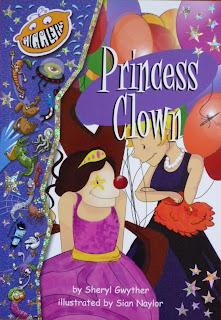Another lesson which can be summed up in one word and, at the risk of sounding all Sesame Street-ish, the word for today is: Improve.
I can hear a little mumble coming from your side of the monitor: How does she know I need to improve my writing? How does she know I’m not brilliant? Truth is I don’t know how brilliant you are (or aren’t) but I do know you can improve. How do I know? Because every writer can improve. Being a writer is a growth process. The more you read and the more you write, the more your writing improves. So no matter how good you are today, if you keep reading and writing, in a year’s time your writing will be even better.
So, how do you improve? Partly by doing. By writing every day (see Lesson 2: Write). Also, by observing other writers (see Lesson 1: Read). And , lastly, by learning. You don’t have to do a big expensive writing course to learn new writing skills (though writing courses can be wonderful). You can learn by reading a look on the craft. You can learn by reading blogs and articles online. But don’t just read them – put what you read into practice. Use what you learn to make changes to your writing practice – and to improve the pieces you revise.
An example. I recently read an excellent piece on overused words. There are words which are commonly overused such as ‘that’ (as in “I thought that I might take the bus” rather than simply “I thought I might take the bus”). I knew this. I had heard it before. I had taught it before. But, after reading this piece I reread my work in progress looking specifically for instances where I had overused the word ‘that’. And there were a lot of them! So, I got rid of them. Voila – my work was improved very simply.
A more general example. My bottom drawer (referred to last lesson) is full of pieces I wrote last month, last year – even some from last century – but haven’t managed to get published. Every now and then I explore these buried treasures, and often I see something there that I can revisit. But, at the same time, without fail, I also cringe at the mistakes I spot, or the overall quality of the writing. That is because my writing has improved since those pieces were written – improved because I’ve continued to learn and grow as a writer. Now I am able to revisit some of those pieces and rewrite them much more strongly.
Note that I haven’t used the term ‘editing’ which is a grown up technical-type term for one form of improving. That’s because I want to talk more in future lessons about editing and also revising. In the mean time, your challenge this lesson is to ask yourself what steps you are taking to improve your writing.


